Core Faculty | Adjunct Faculty | Adjoint Faculty
Core Faculty
Core Faculty in the MMI PhD program are those at the Main Campus in whose labs MMI students can pursue doctoral dissertation research.

Astrid Cardona, Ph.D.
Professor of Immunology
Dr. Cardona's research is focused in understanding the mechanisms of tissue damage in multiple sclerosis and diabetic retinopathy. Her laboratory focuses on the functional interactions between immune cells, microglia, neurons, and blood vessels, utilizing experimental mouse models of disease, immunological assays, flow cytometry, fluorescent activated cell sorting, microscopy, and molecular biology approaches. Her research program is concentrated in translational approaches for the treatment of diabetic retinopathy and multiple sclerosis.
» Cardona Lab
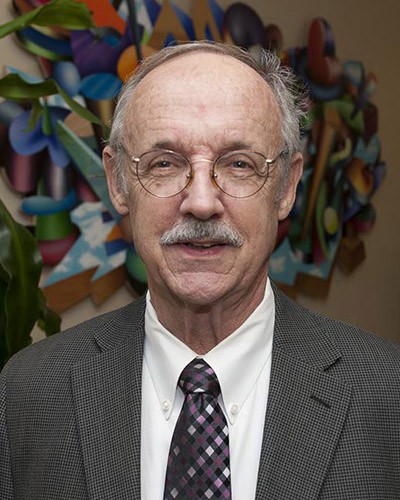
James Chambers, Ph.D.
Professor of Biochemistry
Dr. Chambers is an established biochemist of long standing with national/international recognized expertise in many aspects of the enzymology of inherited lysosomal storage diseases (i.e., Gaucher and Pompe's Disease), glyconjugate characterization, receptor mediated channel function (i.e., Ca 2++Mg 2+ Dependent ATPase), and biosensor sensing element development (antibody, RNA aptamer, DNA-branched chain nucleic acid, and dendrimer based formats) for detection/diagnosis of Influenza and bacterial pathogens.
» Chambers Lab
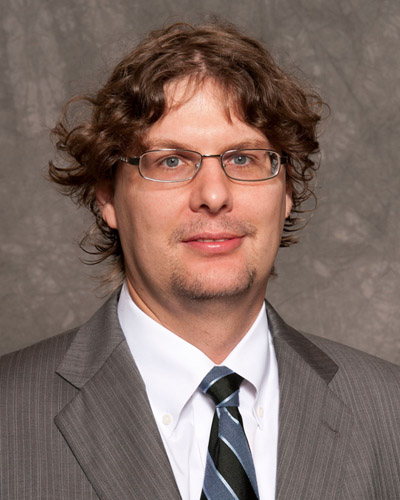
Mark Eppinger, Ph.D.
Associate Professor
The focus of Dr. Eppinger's research is on the application of microbial genomics to address fundamental questions in emerging infectious diseases research. His current interests are directed towards large-scale sequencing and phylogenomic studies investigating major public health threats, such as Shiga toxin producing Escherichia coli and multidrug resistant (MDR) enteric bacteria of clinical importance. Experimental approaches include microbial genome sequencing, phylogenomics, microbial diversity, and pathogenicity.
» Eppinger Lab
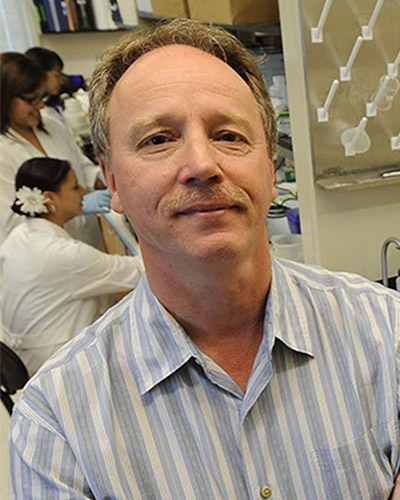
Thomas Forsthuber, M.D., Ph.D.
Professor of Immunology
Erroneous activation of the immune system can lead to autoimmune diseases such as multiple sclerosis (MS). Dr. Forsthuber's lab pursues several lines of investigation to understand how the immune system, in particular T cells, contribute to autoimmune diseases and how to modulate T cell immunity for therapeutic purposes in humans. Specifically, he studies immune mechanisms in the central nervous system in experimental autoimmune encephalomyelitis (EAE), the animal model for MS. Moreover, Dr. Forsthuber studies human autoimmune heart disease in a model called experimental autoimmune myocarditis. His research is aimed towards direct applicability to human diseases, for example by developing novel drugs for autoimmune diseases and biomarkers to monitor the efficacy of treatments for autoimmune diseases.
» Forsthuber Lab
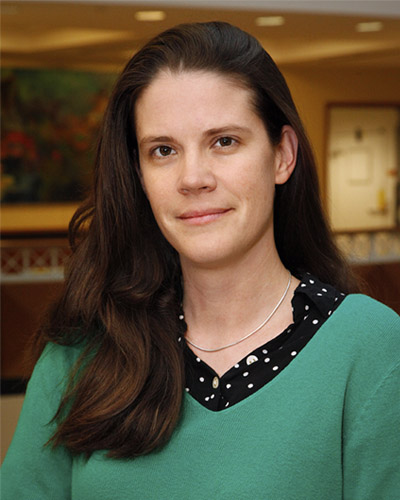
Kirsten Hanson, Ph.D.
Associate Professor of Parasitology
Despite great strides in malaria control during the past decade, Plasmodium parasites still caused over 200 million clinical cases of malaria during 2015, leading to over 400,000 deaths. The parasite forms responsible for malaria exclusively infect red blood cells, but all mammalian Plasmodium infections must initiate in the liver. This liver stage of parasite development has emerged as a key target for antimalarial chemoprophylaxis, as it precedes both disease and transmission back to the mosquito vector. Successful interventions against liver stages can thus protect both individuals and populations, a key challenge for the malaria elimination agenda. Dr. Hanson's research program is dedicated to identification of the most desirable compounds for liver stage-directed chemoprotection. In addition to the lab's compound screening program, they focus on novel assay development and chemical biology approaches to interrogating the unique cell biology that supports syncytial growth during the Plasmodium liver stage and the rapid cellularization process that ends the liver stage, generating thousands of individual parasites that invade red blood cells, and cause disease.
» Hanson Lab
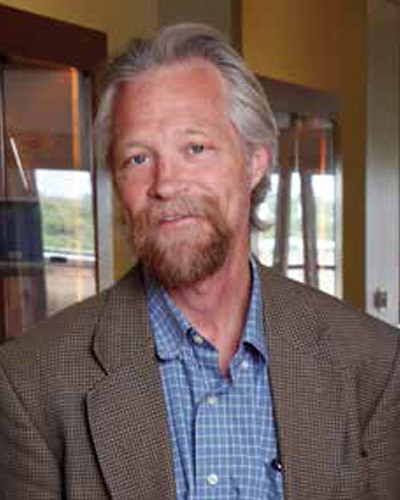
Hans Heidner, Ph.D.
Professor of Virology
The primary focus of Dr. Heidner's research lab is the design and development of alphavirus-based vectors and vaccines. Alphaviruses are small RNA viruses that are spread to humans and other vertebrates through the bites of infected mosquitoes. Alphaviruses possess a number of properties that support their use as vectors for expressing foreign genes of interest. The lab is using Sindbis virus, the prototype alphavirus, to develop and evaluate new strategies for targeting alphavirus vectors, or alphavirus-expressed antigens to immunologically relevant cell types such as dendritic cells. An additional project focuses on the development of an alphavirus-based influenza vaccine.
» Heidner Lab

Chiung-Yu Hung, Ph.D.
Professor
Dr. Hung's lab studies host-pathogen interactions, specifically host immunity to fungal infections with Coccidioides species. These fungi are known to live in the soil in the southwestern United States and parts of Mexico and Central and South America. An estimated 150,000 people in the United States become infected with Coccidioides annually. VF is typically transmitted by inhalation of airborne spores of Coccidioides spp. The most common clinical presentation of coccidioidomycosis is pulmonary disease while dissemination of infection to skin, bone, and central nerve system can occur. Patients who present with severe acute pneumonia, chronic pulmonary VF, and disseminated coccidioidomycosis require antifungal therapy, which is potentially life-long with currently available drugs. There is an urgent and unmet need to develop better chemotherapies and a vaccine against Coccidioides infection.
» Hung Lab
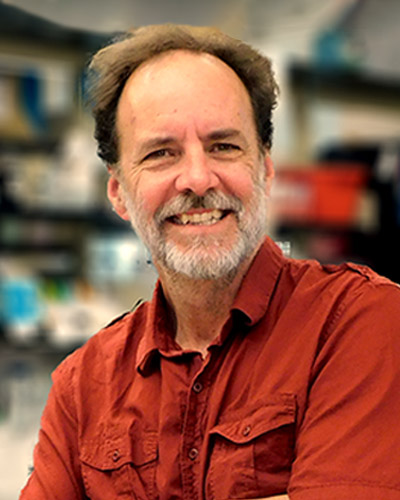
Karl Klose, Ph.D.
Professor of Microbiology
Dr. Klose's lab is interested in bacterial pathogenesis -- how bacteria cause disease. Dr. Klose has worked most extensively with Vibrio cholerae, the bacterium that causes cholera, and is also researching Francisella tularensis, the bacterium that causes tularemia (rabbit fever). Cholera is found only where there are widespread problems with sanitation, so improving water and food supplies would eliminate the disease. Since that is unlikely to occur, a safe, cheap, effective vaccine is needed that would protect people. To design such a vaccine, the lab is addressing questions such as: How does V. cholerae know that it is in a human body and that is the place to express genes necessary for its survival and disease potential? What are the genetic factors responsible for V. cholerae to cause disease? How does this organism persist in aquatic environments, which lead to human infection? Very little is known about F. tularensis or about tularemia. It is a highly virulent organism and can easily be aerosolized, so it is classified by the Centers for Disease Control (CDC) as a Category A select agent with the highest potential to be used as a biological weapon. The lab is working to identify genetic factors responsible for F. tularensis to cause disease and to develop suitable vaccine candidates to protect against tularemia infection.
» Klose Lab

Jose Lopez-Ribot, Pharm.D., Ph.D.
Professor of Microbiology
Research in Dr. Lopez-Ribot's lab has provided important insights into the pathogenesis of candidiasis, the main fungal infection affecting an increasing number of immune- and medically-compromised patients. This work encompasses from the basic biology of the cell wall, biofilm formation, adhesion and morphogenetic conversions, to the use of animal models to better understand virulence and host responses, to the more clinical aspects such as antifungal drug discovery and development, drug resistance, vaccines, and nanobiotechnological approaches, with the ultimate goal of devising new strategies for the diagnosis, prevention and treatment of candidiasis.
» Lopez-Ribot Lab
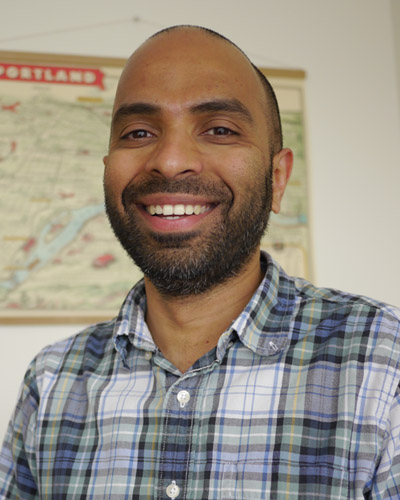
Rahul Raghavan, Ph.D.
Associate Professor
Research in the Raghavan lab combines molecular microbiology with evolutionary genomics to investigate how changes in proteins and non-coding RNAs facilitate bacterial adaptation. Three main avenues of current research are: 1) Utilize tick-associated Coxiella and Francisella to uncover how pathogens and symbionts rewire their physiologies to thrive in disparate environments, 2) Determine the roles bacterial and human regulatory RNAs play during Coxiella burnetii infection, and 3) Discover how new regulatory RNAs originate and gain functions in bacteria. The long-term goal is to use this information to develop innovative therapies that target pathogen-specific RNAs and metabolites to control infections that are difficult to treat with currently available antibiotics.
» Raghavan Lab

Jesús A. Romo, Ph.D.
Assistant Professor
The contributions of commensal fungi to human health and disease in the gastrointestinal (GI) tract are not well understood. Candida species such as C. glabrata are opportunistic pathogenic fungi and common colonizers of the human GI tract. They have been shown to affect the host immune system, interact with the gut microbiome and pathogenic microorganisms, and impact bacterial diversity after antibiotic treatment. Therefore, Candida species are expected to play key ecological roles in the host GI tract. The Romo laboratory studies the roles and impact of fungal colonizers of the GI tract during infection by bacterial pathogens such as Clostridioides difficile. C. difficile is an anaerobic, Gram-positive, spore-forming, and toxin-producing bacterial pathogen able to cause mild (antibiotic-associated diarrhea) to potentially fatal GI disease (pseudomembranous colitis, toxic megacolon) primarily in those who are elderly, have been hospitalized, and/or received a course of broad-spectrum antibiotics. Importantly, antibiotic treatment also leads to an expansion of fungi in the GI, setting the stage for transkingdom interactions. To characterize these fungal-bacterial interactions and their impact on disease outcome, we use a combination of murine, human derived cell line, and in vitro models. The knowledge obtained from our studies will uncover novel fungal biology and inform the development of novel therapeutics such as fecal transplants and antimicrobials.
» Romo Lab

Stephen Saville, Ph.D.
Associate Professor of Molecular Microbiology
Dr. Saville's lab conducts research on the fungal pathogen Candida albicans and specifically how it is able to cause disease in humans. The fungus forms part of the normal microbiome of humans, existing as a commensal on the mucosal surfaces of the mouth, vagina, or GI tract of 30–50% of the population. It is, however, capable of causing a wide range of diseases from superficial, generally treatable conditions such as oropharyngeal candidiasis (OPC; oral thrush) and vulvovaginal candidiasis (VVC; "yeast" infection) to a much more serious, life-threatening disease should the fungus disseminate to the deep organs. The major cellular attribute linked to C. albicans' capacity to cause disease is its ability to alter its growth form from single celled "yeast" to an elongated form called a hypha. The lab's research is focused on unraveling the cellular machinery controlling hypha formation and developing new antifungal drugs that will inhibit this process.
» Saville Lab

Janakiram Seshu, Ph.D.
Professor of Microbiology
Dr. Seshu's research focus is to study how pathogenic bacteria interact with their hosts leading to infectious diseases such as Lyme disease and Q fever. The lab has started studies on how antibiotic-resistant strains of bacteria influence physiological responses critical for healing of infected wounds. They determined the role of key players in regulatory pathways that facilitate bacterial pathogens to adapt to different environmental conditions and devise strategies to interfere with the lifestyles of bacteria to prevent their infectious capabilities. The lab also focuses on developing a variety of products such as vaccines, inhibitors of critical metabolic pathways, and modulators of host response to prevent bacterial infections using a number of experimental models of infection in conjunction with state-of-the-art methods in genomics, proteomics, and metabolomics of host-pathogen interactions.
» Seshu Lab

Yufeng Wang, Ph.D.
Professor of Bioinformatics and Computational Biology
Research in Dr. Wang's lab focuses on the comparative genomics, molecular evolution, and systems biology of gene families. The lab uses genomic and related data, coupled with other biochemical and microbiological information, to identify new therapeutic targets and to further study the underlying evolutionary mechanisms in diseases such as malaria. Their research has a particular emphasis on the functional divergence of duplicated genes, which are believed to provide the raw material for functional novelty. The lab is also interested in the association between sequence evolution and gene network regulation.
» Wang Lab
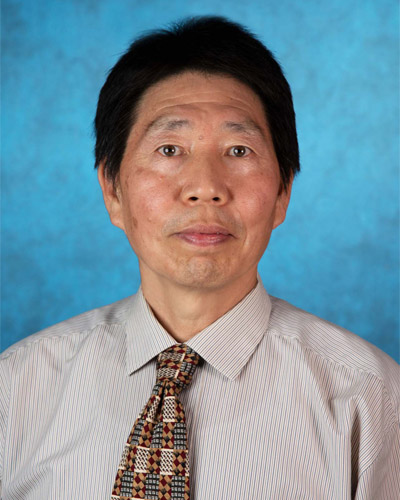
Guoquan Zhang, D.V.M., Ph.D.
Professor of Immunology and Vaccine Development
Dr. Zhang's research focuses on understanding the cellular and molecular mechanisms of protective immunity against aerosolized intracellular bacterial pathogens and developing novel approaches for discovery of safe, effective vaccines and immunotherapeutic strategies against aerosol-transmitted intracellular bacterial pathogens. To accomplish these broad goals, current projects in the lab are designed to understand the cellular and molecular mechanisms of protective immunity against Coxiella burnetii infection and to develop a safe and effective vaccine against human Q fever. Current studies include NIH funded or pending projects: 1) Use of a humanized antibody against intracellular bacterial pathogen, 2) Understanding the role of dendritic cells in regulating vaccine-induced protective immunity against Q fever, 3) Use of mimetic peptides vaccines against aerosol-transmitted bacteria, and 4) Understand the mechanisms of B cell-mediated protective immunity against Q fever.
» Zhang Lab
Adjunct and Adjoint Faculty in the MMI PhD program are those at other institutions in whose labs MMI students can pursue doctoral dissertation research.
Adjunct Faculty

Bernard Arulanandam, Ph.D.
Vice Provost for Research, Tufts University
Dr. Arulanandam's lab studies the basic mechanisms of immune defenses at mucosal sites. The lab investigates host immunity and pathogenesis associated with pulmonary and genital Chlamydia trachomatis and characterization of A. baumannii virulence factors using gastrointestinal (GI) and pulmonary infection models.

Garry Sunter, Ph.D.
Biological Sciences Department Chair, Northern Illinois University
The Sunter laboratory explores aspects of host-pathogen interactions using geminiviruses. Geminiviruses are a significant threat to food security worldwide and current control measures include limiting vector populations using pesticides, which is a significant health concern, as pesticides work by disrupting nervous system function.

Floyd Wormley, Jr., Ph.D.
Associate Provost for Research and Dean of Graduate Studies, TCU
Dr. Wormley's research is focused on microbial pathogenesis, medical mycology, host-pathogen interactions, mucosal immunology, and vaccine development.
Adjoint Faculty
Texas Biomedical Research Institute (TBRI)

Timothy Anderson, Ph.D.
Adjoint Professor
Parasitic diseases still plague broad swaths of the world's developing countries, reducing childhood survival rates and stunting economic growth. However, genome sequence data for the pathogens involved and funding from various organizations give new hope of controlling or even eliminating these diseases. Dr. Anderson focuses on the genetic basis and evolution of biomedically important traits in two of the most important human groups of parasites: malaria parasites and parasitic blood fluke (Schistosoma species) responsible for schistosomiasis.

Ricardo Carrion, Jr., Ph.D.
Adjoint Professor
Dr. Carrion's lab aims to advance the vaccine and therapy development specifically for hemorrhagic fever, an illness caused by viruses from distinct families, many of which have no cure, and for which no vaccines are available. Research includes Ebola virus and Marburg virus, common marmoset nonhuman primate infectious disease models, advanced development of vaccines for hemorrhagic fever viruses, and new detection methods for bioterror agents.
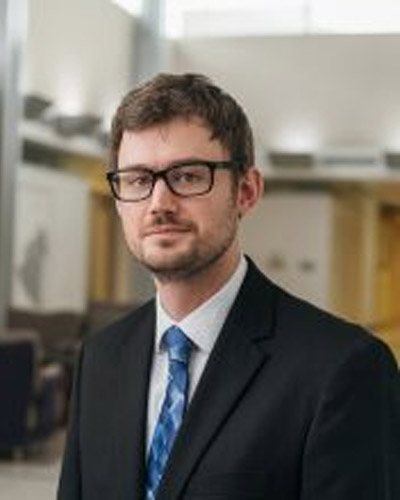
Ian Cheeseman, Ph.D.
Adjoint Associate Professor
Dr. Cheeseman's laboratory uses genomic and computational approaches to characterize the complexity of malaria infections, the evolution of drug resistance, and the rate and spectrum of adaptive mutations in the malaria parasite genome. They study complex malaria infections with single cell genomics approaches in those malaria parasites that are most deadly ( Plasmodium falciparum) and most prevalent ( Plasmodium vivax) and investigate the emergence and spread of drug resistance in malaria parasites.

Marcel Daadi, Ph.D.
Adjoint Associate Professor
Dr. Daadi is an expert in regulated translational research and has developed therapeutic neural stem cell lines (NSC) for clinical use in Parkinson's disease, stroke, and to target brain tumors in both industrial and academic settings. He discovered a novel technique of engineering these stem cell lines from pluripotent human embryonic stem cells and continues to develop this therapeutic cell line for clinical use.
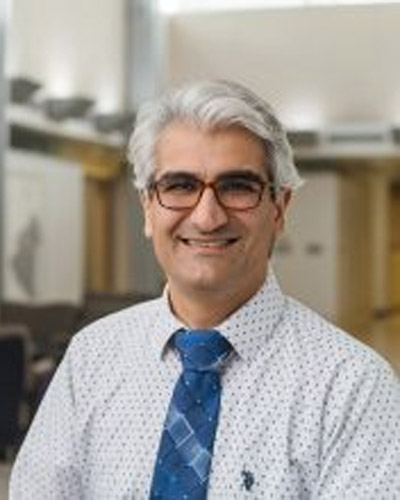
Diako Ebrahimi, Ph.D.
Adjoint Assistant Professor
Dr. Ebrahimi leads a cross-disciplinary quantitative biology program. His lab combines data and expertise across multiple quantitative and experimental science disciplines such a genetics, virology, cancer, evolution, bioinformatics, mathematics, and statistics to develop and test novel hypotheses. Current studies in Dr. Ebrahimi's lab focus on identification and quantification of molecular processes in viral and cancer immunity and evolution.

Marie Claire Gauduin, Ph.D.
Adjoint Associate Professor
Dr. Gauduin has more than 25 years of experience in HIV/AIDS research and medical microbiology. She has been working extensively on HIV and the development of novel vaccine strategies using the non-human primate model for AIDS. In her work, she uses epithelial stem cells and weakened recombinant papillomavirus as vaccine- vectors to protect against multiple low-dose mucosal challenges. Dr. Gauduin is also developing a neonatal model for tuberculosis to study HIV/TB co-infection in pediatric AIDS.

Deepak Kaushal, Ph.D.
Adjoint Professor
Dr. Kaushal's research focuses on several different aspects of M. tuberculosis ( Mtb) infections. Dr. Kaushal and his research team have made major discoveries about how Mtb interacts with the primate lungs, within the granulomas, and have provided fundamental insights into the biology of the pathogen as well as the host environment. The establishment of a robust macaque model of inhalation TB and TB/AIDS has allowed the platform to be used for testing of novel vaccine candidates as well as drugs against TB.

Luis Martinez-Sobrido, Ph.D.
Adjoint Professor
Dr. Martinez-Sobrido's lab is interested in the molecular biology, immunology, and pathogenesis of negative-strand and positive-strand RNA, and DNA viruses. His lab aims to develop vaccines and antivirals that can be long-lasting for viral infections in humans. The team plans to study pathogens responsible of causing hemorrhagic fever in humans. Currently, Dr. Martinez-Sobrido's team is mainly focusing on the study of SARS-CoV-2.

Smriti Mehra, Ph.D.
Adjoint Associate Professor
Dr. Mehra seeks to understand basic mechanisms of tuberculosis (TB) infection, and develop new vaccines and therapies that can stop this devastating infectious disease. She specifically studies how latent TB evades the body's immune system, hiding in the lungs often for decades, before becoming active and causing serious illness. She also studies active TB and interactions between TB and HIV.

Corinna Ross, Ph.D.
Adjoint Associate Professor
Dr. Ross' research focuses on the development of the marmoset as a model for human health and disease. In characterizing aging in the marmoset, Dr. Ross is evaluating potential interventional treatments to increase health span in geriatric populations. Her research encompasses marmoset health in the areas of aging, obesity, early development, and reproduction.

Diana Scorpio, D.V.M.
Adjoint Professor
Dr. Scorpio oversees all aspects of the Southwest National Primate Research Center (SNPRC) animal care and use program. She has more than 20 years of experience in laboratory animal care and medicine utilizing a variety of species including nonhuman primates, other large animals, and rodents. Dr. Scorpio is involved in collaborative and independent research related to animal models of infectious disease, vaccine development and therapeutics, and tick-borne disease transmission.
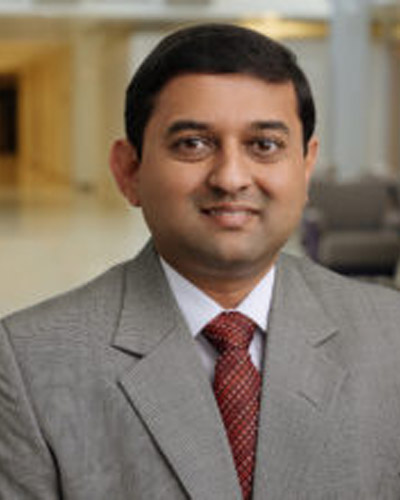
Vinay Shivanna, Ph.D.
Adjoint Professor
Dr. Shivanna provides pathology support (including but not limited to cytologic, gross, and histologic examination) for non-human primates and other laboratory animals as part of colony management and also those involved in various research studies in BSL-2 and BSL-3 settings. His interests include comparative pathology, confocal microscopy and animal model development for infectious, metabolic and toxicology studies.

Jordi Torrelles, Ph.D.
Adjoint Professor
Dr. Torrelles' research is focused on the study of the human lung environment and its effect on the outcome of TB disease due to Mycobacterium tuberculosis ( M.tb) infection. He also aims to improve the diagnosis of susceptible and drug resistant TB in high burden areas. Dr. Torrelles and his team currently have a patented TB vaccine candidate, based on a selective biochemical removal of lipids from the bacterium cell wall that mimics the modifications that M. tuberculosis suffers when it gets in contact with the human lung mucosa.

Joanne Turner, Ph.D.
Adjoint Professor
Dr. Turner studies the changes that take place in the immune system during the natural aging process and how those changes can influence both innate and adaptive immune function when infected with M. tuberculosis. The primary focus of Dr. Turner's aging research is the association of inflammation with susceptibility to develop TB. She also studies immune responses that correlate with an individual's age-associated susceptibility to reactivate a previously latent infection with M. tuberculosis.

